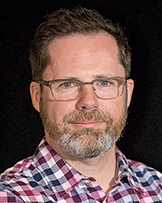 by Marc Schroeder
by Marc Schroeder
Alberta’s premier, free-market champion Jason Kenney, is wreaking havoc on the province’s postsecondary education system—not just through cuts and privatizations but through a brutal reshaping of public education itself.
In April of 2021, Jason Kenney’s United Conservative Party (UCP) government formally unveiled its plan to transform postsecondary education (PSE) in the province of Alberta. The UCP’s vision, laid out in its initiative, Alberta 2030: Building Skills for Jobs, is a strategy for tethering public PSE to private sector priorities.
In December, the UCP amended the Post-Secondary Learning Act with Bill 74, putting into law the plan of action contained in Alberta 2030—a larger say for industry, the alignment of education priorities with those of employers, and prioritizing research commercialization. These developments come on the heels of years of deep funding cuts.
The result of this onslaught is skyrocketing student tuition and growing labor unrest. Faculty and staff are being told to work even harder for less. However, because of the UCP government’s constitutionally dubious secret employer bargaining mandates, union demands for proper compensation have been effectively hobbled. With Alberta’s 2022 budget doubling down on the attack on public PSE, it is time for faculty associations to fight back.
The Kenney government’s most powerful levers in repurposing PSE are austerity coupled with performance-based funding (PBF). The former, rolled out over four consecutive UCP budgets and counting, leaves institutions on track for a jaw-dropping 20 percent cut in government-funded operating expenses by 2023–24. These cuts amount to more than 30 percent per full-load-equivalent student, accounting for inflation and enrollment growth.
Universities and colleges are being commanded to grow their domestic and lucrative international enrollments to offset funding cuts while keeping downward pressure on labour costs. These requirements are intensifying a corporatized, market-fundamentalist model that repositions students as investors in their futures.
Performance-based funding, introduced by the UCP in 2020, is a new stick to wield over financially starved, compliance-ready institutions. Universities are being compelled to only prioritize those programs that lead directly to postgraduation employment in a related field. Universities are also being forced to focus on growth—growth that increasingly requires private sources of revenue.
Bill 74 gives no assurances of an independent or democratically accountable council. The council will report to the advanced education minister on strategic directions for PSE and metrics for PBF. This arrangement is consistent with the UCP’s tendency to commission panels and reports that parrot predetermined aims. These fait accompli review processes undermine institutional autonomy, democratic shared governance, and academic freedom.
This year’s budget provides carrots to institutions starved of funding, but there is a catch—these carrots are comprised of funding that is earmarked for programs favored by the government.
The UCP’s well-laid plans are not cosmetic adjustments. Following almost immediately after the UCP’s 2019 election victory, the party purged public members from boards of governors. In many cases, new board members hold high-level positions at corporations that benefit directly from the UCP’s deep cut to Alberta’s corporate tax rate, which, at 8 percent, is now the lowest by far among Canadian provinces.
Tuition increases in Alberta are now effectively 7 percent per year on average but have increased by as much as 71 percent in some cases. These increases, however, cannot counterbalance the UCP’s vicious cuts to PSE, leaving many universities to seek job cuts and wage rollbacks from faculty and staff—vast numbers of whom are precariously employed in low-paying, course-by-course teaching contracts.
In contrast with their underpaid subordinates, the province’s richly compensated university presidents are ardent Alberta 2030 cheerleaders. The University of Calgary president’s Growth Through Focus plan rejects funding, instead seeking growth through an “entrepreneurial” approach that relies on private sector partnerships. Mount Royal University’s chancellor, who at the time of her 2020 appointment was the CEO of TransAlta, an Alberta power company, describes PSE as an investment that should demonstrate an economic return.
The present transformation of universities and colleges into factories that cater to the demands of the private sector is a matter of grave concern. Universities ought to be truly public resources, made universally accessible for all members of our communities. Critical thinking can’t exist without autonomy and agency —the very qualities that are stifled by instrumentalist approaches to PSE.
A Supreme Court of Canada decision in 2015 ruled essential services legislation— which prevents public sector employees from striking—to be unconstitutional. Recently, university staff at Concordia University of Edmonton and University of Lethbridge decided to make use of this right to strike. Widespread organizing and solidarity-building are on the rise.
The UCP has slashed public support for PSE and dressed up these cuts in rhetoric that celebrates “innovation.” The result has tethered higher learning to the economic wants of a powerful few. Educators, university support staff, and students must fight to get our public universities back.
The complete version of this commentary first appeared on May 8, 2022 in the Jacobin magazine.
Marc Schroeder is an associate professor in the Department of Mathematics and Computing at Mount Royal University. He has served as President of the Mount Royal Faculty Association (2014-2018) and as member-at-large (General) on the CAUT Executive Committee (2018-2021), and currently serves as a member of the CAUT Ad Hoc working group on Governance.